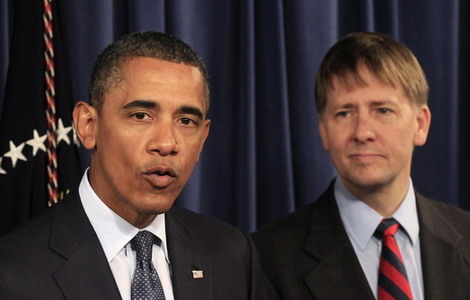Jitters may keep money supply tight
Updated: 2012-01-08 07:48
By Chen Jia (China Daily)
|
|||||||||
At the end of 2011, the nation's money supply had reached more than 12 trillion yuan ($1.9 trillion), accounting for 180 percent of the total GDP, making it the world's highest ratio.
Li Daokui, a member of the monetary policy committee of the People's Bank of China, said this was too high a rate and would pose a risk if growth continued unabated. He was speaking at an economic forum on Saturday.
"The systemic financial risk is the biggest worry currently," he warned. "Bank lending should not be too loose, otherwise the debt default risk may increase and spark a crisis in the whole financial system."
Many economists had expected the monetary policy to ease by reducing the amount of cash that commercial banks must keep in reserve, as a measure to slow the economic downturn.
China has already entered a slowdown cycle after hitting an average GDP growth of 10 percent in the past decade. The slowdown is influenced by the ongoing debt crisis in European countries and global economic deterioration, analysts said.
A report from the Bank of Communications predicted that fourth quarter GDP growth in 2011 may drop to 8.6 percent from the third quarter's 9.4 percent, and that may pull down the whole-year growth rate to 9.2 percent.
The weaker demand from the Eurozone, China's largest trade partner, and the cooling domestic real estate market will continue to add pressure on the world's second largest economy this year, it said.
Jia Kang, director of the Fiscal Science Research Center of the Ministry of Finance, said on Saturday that "China is now under systemic financial risk, but it is controllable".
Despite the easing of monetary policy, it is fiscal policy that is expected to play a more important role in balancing economic growth, Jia said.
Spending in the coming months will focus on manufacturing, boosting consumption and stabilizing economic growth, Jia said. These will work together with some tax reduction.
"However, the government's financial deficit this year is unlikely to exceed that of 2011," he added.
To keep risk factors under control, Cao Yuanzheng, chief economist with the Bank of China, suggests that commercial banks should offer more security products and spread the risk through transactions in capital markets.
Cao says: "It will require more regulation of commercial banks' financial products and controlling the amount of assets to curb the expansion of off-balance-sheet assets."
Hot Topics
Kim Jong-il, Mengniu, train crash probe, Vaclav Havel, New Year, coast guard death, Internet security, Mekong River, Strait of Hormuz, economic work conference
Editor's Picks

|

|

|

|

|

|







